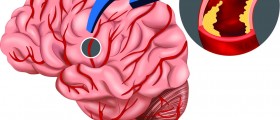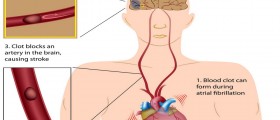
Introduction
Cardiac surgery refers to any type of surgical procedure performed on heart and its structures as well as onto the large blood vessels that are coming from and entering the heart. In spite of modern approaches and advanced techniques and medications that are used in prevention of possible consequences, there are certain complications that can develop during or after the cardiac surgery. All the complications can be classified as short-termed and permanent. The classification can be also done according to organs and organ systems that have been affected.
General Complications of Cardiac Surgery
Hemorrhage may be one complication and the location can be either some blood vessel or the heart itself. In case that bleeding is excessive a patient is given blood transfusions. Cardiac tamponade is another complication caused by excessive bleeding. This time the blood collects into the pericardium not allowing the heart to properly pump blood. The shortage of blood supply can leave heart without enough nutrients and oxygen. This can result in ischemic changes on the heart. The heart rhythm may be disturbed. Sometimes during the surgery even life-threatening arrhythmias occur. After the surgery the patient is prone to increased coagulation and forming of blood clots inside the heart. The clots may deattach and travel to other parts of the body such as lungs and lead to severe additional complications. Clots may be even a cause of a stroke. The lethal outcome is another complication that can occur either during the very surgery or a few days after.
Complications that Affect Certain Organs
Intestines can be affected with ischemia and blood clots. This insufficient supply of blood leads to necrosis and permanent loss of function of the affected part. Some patients may develop arrest in intestine passage called ileus.
Liver disorders are possible as well. They include problems with secretion, jaundice, and even hepatic encephalopathy. The patients with the history of liver illnesses are more prone to hepatic complications of cardiac surgery.
Only a small number of patients present elevated levels of pancreatic enzymes and those whose levels are very high develop the obvious symptoms and signs of acute pancreatitis. Mortality is increased if a patient develops acute pancreatitis after the heart surgery. Sometimes acute pancreatitis leads to additional injury of spleen and this way two organs are affected at the same time.
Brain can suffer from insufficient supply of blood or can be affected by metastatic emboli. The stroke is one of the rather serious complications resulting from heart surgery. The similar thing can happen to lungs.

















Your thoughts on this
Loading...